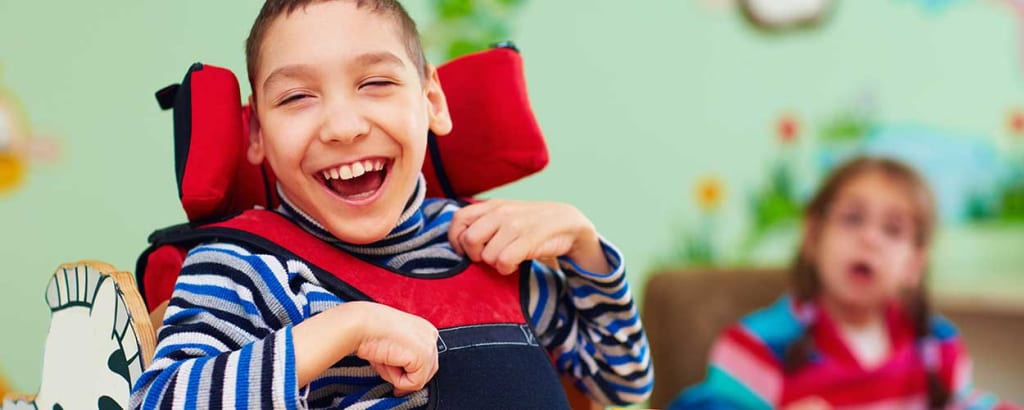
Autism Spectrum Disorder (ASD) is a complex neurodevelopmental disorder that affects how a person perceives the world and interacts with others as it impacts the development of the brain. According to the CDC, autism affects 1 in 59 children in the U.S. and tens of millions worldwide. As a lifelong disorder, autism has no known cure, and treatment options are limited. However, recent advancements in stem cell therapy are providing new hope for families as studies show it can reduce symptoms and improve communication, sociability, and quality of life for children with autism.
My name is Aisha and I'm a medical writer and the mother of a child with autism. Like many parents, I have tried countless treatments to help my son Ali including speech and occupational therapy, strict diets, supplements, and medications. While some approaches provided minor benefits, Ali's progress was slow and limited. My world changed when I came across the pioneering stem cell clinic, R3 Stem Cell, and learned about their work with children who have autism. After poring over their studies and speaking to the doctors and families, I knew stem cell therapy was the solution I had been looking for.
Last year, my 8-year-old son Ali underwent two rounds of stem cell therapy at R3 Stem Cell in Pakistan. As a medical writer, I understand how stem cells work on a scientific level but seeing the changes in my own son has been nothing short of a miracle. Within months of treatment, Ali became calmer and less irritable. His speech improved markedly and he started engaging with others spontaneously showing interest in social interaction for the first time. His repetitive behaviors, strict routines, and compulsive habits that impacted daily life have significantly reduced. Six months post-treatment, Ali continues to progress in managing his emotions, communicating his needs, and participating in mainstream social activities with minimal limitations.
How Stem Cells Work For Autism
Stem cells are the body's raw materials from which all other cells with specialized functions are generated. Mesenchymal stem cells harvested from fat tissue have unique abilities to travel long distances to sites of injury and inflammation, replacing damaged neural cells and repairing damaged circuitry.
Several clinical studies show that infusions of autologous mesenchymal stem cells, harvested from the patient's own adipose tissue or bone marrow, can have significant therapeutic benefits for children with ASD. A 2017 study published in the Annals of Clinical and Translational Neurology found that infusions of stem cells led to short-term behavioral improvements including enhanced sociability, improved eye contact, and a reduction in restricted and repetitive behaviors. The most dramatic changes were seen in children with the most severe ASD symptoms at the start of the study.
A trial conducted by R3 Stem Cell focused on reducing neuroinflammation and modulating the immune response at the cellular level. Their findings demonstrate that autologous stem cell therapy decreases inflammation in the central nervous system and repairs neural connections involved in speech, emotion regulation, and social skills. For children with autism, the ability to modulate the immune response and repair neural pathways can translate into meaningful gains in cognition, learning, communication, and social interaction.
How Families Are Benefiting From Stem Cell Therapy
Samuel, aged 6, was diagnosed with autism at 3 years old. His speech was limited to short sentences and he exhibited rigid routines, sensory sensitivities, and social anxiety. After two rounds of stem cell therapy at R3 Stem Cell Pakistan, Samuel's parents reported significant improvements in his speech, vocabulary, and conversation ability. Six months post-treatment, Samuel is engaging with peers and speaking in full sentences with increasing complexity. His strict routines and compulsive habits have markedly reduced as well.
Aisha, a 4-year-old girl with ASD, struggled with severe speech delays, social difficulties, and extremely restricted interests that limited her participation in daily activities. Within weeks of stem cell treatment, Aisha became more socially engaged, made frequent eye contact, and took an interest in playing with other children. Her speech production accelerated rapidly and her repetitive behaviors decreased substantially. After the second treatment, Aisha's progress in communication, social skills and flexibility continued. At her 6-month follow-up, Aisha was able to transition into mainstream classes with minimal support.
While some families see dramatic improvements after just a single round of stem cell therapy, more significant gains are often achieved after the second round of treatment. Ongoing benefits for up to 6-12 months post-treatment demonstrate the long-lasting effects of mesenchymal stem cells on neural repair and their ability to provide more than transient relief from symptoms. With increased scientific validity and mainstream recognition, stem cell therapy is poised to become an essential treatment for children and families struggling with the challenges of autism.
Stem cell therapy represents new hope for families like mine who envision a life without limitations for their children. While autism is a lifelong journey, stem cells have given us a path forward where there were few options before. By reducing symptoms, improving function, and giving children the ability to live more independent lives, stem cells are changing futures each and every day.





Comments
There are no comments for this story
Be the first to respond and start the conversation.